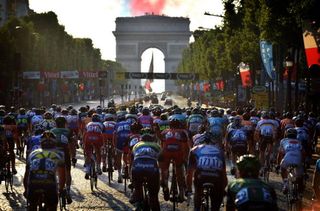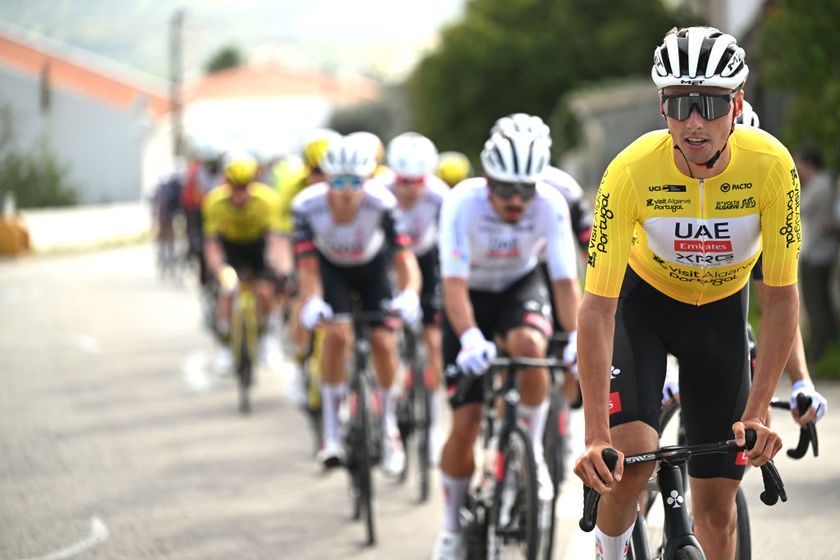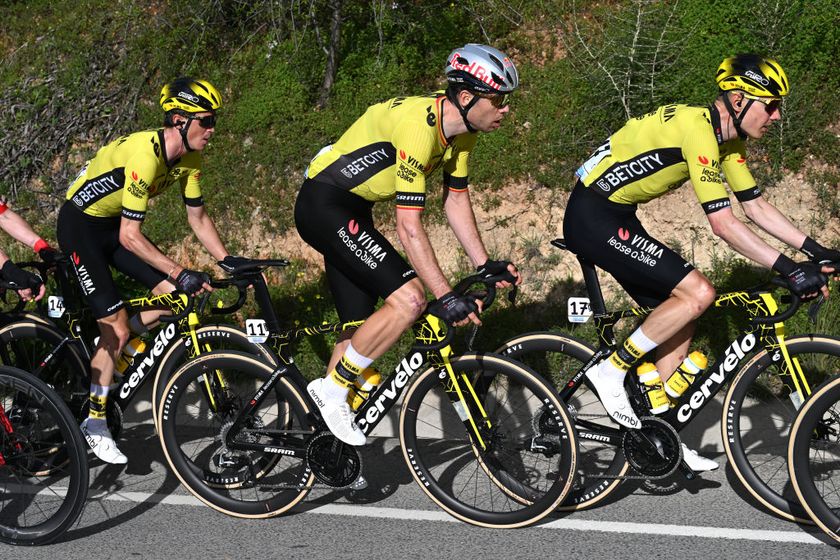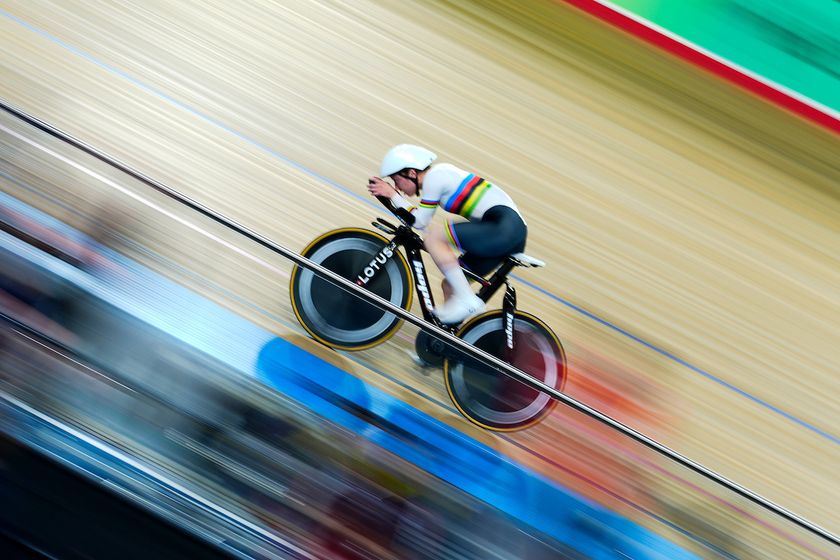No positive doping tests at 2013 Tour de France
CADF says samples will be stored for retrospective analysis

The CADF (Cycling Anti-Doping Foundation) has confirmed that no positive tests were returned during the 2013 Tour de France. At a press conference in Aigle, at the headquarters of the UCI, the foundation also announced that the number of tests had increased from last year.
“We don't have any adverse findings from the Tour de France this year,” was how CADF Director Francesca Rossi described the situation. However, she stopped short of claiming that it was a clean edition of the race.
In total, 622 pre- and in-competition tests were carried out for the Tour de France with collaboration between the UCI and AFLD, the French Anti-Doping Agency. That number was up on last year, which saw a total of 566 tests over the same period.
Rossi stressed that the testing programme was more dynamic and ‘less predictable’ than in previous years. However, despite Rossi's claim that the testing strategy was a success, no positive tests were found.
During the Tour, 198 biological passport tests were carried out. However, there were only 18 tests for human growth hormone and just two for blood transfusions.
From the urine samples, of which there were 179, 113 were tested for EPO. The number of in-competition EPO tests were down from 2012.
“We met everyday and we set up the testing plan. We followed the race and adjusted the testing plan based off what was happening in the race. If the stages were flat we pointed our attention on the sprinters. If there were mountains we tested more of the climbers.”
Get The Leadout Newsletter
The latest race content, interviews, features, reviews and expert buying guides, direct to your inbox!
Is this is success or not?
Cyclingnews asked Rossi whether the CADF's strategy could be deemed a success, in light of the lack of positive cases and the fact that a number of doping stories from previous decades have only started to surface.
"Or they're more scared. The perception was that they realised that we were unpredictable. Normally you test the yellow jersey, the winner of the stage and you test a random. But this year we changed our strategy. We were in the hotels in the evenings more."
"It was a Tour without adverse analytical findings. That's the correct definition for me." Rossi rebuffed the suggestion from another journalist that it must have been frustrating not to have a single positive case.
Rossi also confirmed that tests were carried out for AICAR but that the CADF and the UCI were waiting on WADA to determine a threshold limit for the substance. She added that samples would be stored with retrospective testing an option for the future.
“We’ve already been testing for AICAR for a long time now. The only problem is that some substances are present in the body, they are naturally there, for example AICAR. So we are working with the WADA in order to establish a cut-off value,” she said.
“We’ve kept samples for future analysis. We’ll do the same with the growth hormone test when that’s validated.”
Independence
Rossi was keen to stress the independence of the CADF’s role within the sport. She and her staff share the same offices with the UCI, and the UCI currently sit on the Foundation Board that manages the testing foundation. Rossi stated that a conflict of interest would not be possible given that labs report all their findings via the ADAMS system that WADA tap into.
Currently with a budget of over 7 million Swiss Francs, Rossi has seen the CADF’s coffers grow substantially, too. The WorldTour team currently contribute just over 2.6 million CHF per annum with the UCI providing 1.1 million. However, Rossi stressed that sharing the same building, and having ties to the UCI had not created any form of conflict.
“In a technological world the location is less important than the people. For me being independent isn’t about your address it’s about the people you have. We are here, in this part of the building that’s dedicated to us and I don’t see any problem in location.”
Brian Cookson, who is challenging current UCI leader Pat McQuaid for the presidency has called for an entirely independent body to run the anti-doping tests within the sport. Rossi has attempted to push for greater independence since taking over in 2010 and motions are in place for a new Foundation Board to be created, however Rossi admitted that her nominations for the new roles must be ratified by the current Foundation Board, which includes the UCI.
Under Rossi’s blueprint for the CADF there would be a president, a lawyer with Swiss based experience, an anti-doping expert and finally an individual with expertise in Swiss finances. She would like to see no UCI influence, although under the WADA code it would still mean that the UCI would have the responsibility of opening any anti-doping violation cases after the CADF had made their recommendations.
Daniel Benson was the Editor in Chief at Cyclingnews.com between 2008 and 2022. Based in the UK, he joined the Cyclingnews team in 2008 as the site's first UK-based Managing Editor. In that time, he reported on over a dozen editions of the Tour de France, several World Championships, the Tour Down Under, Spring Classics, and the London 2012 Olympic Games. With the help of the excellent editorial team, he ran the coverage on Cyclingnews and has interviewed leading figures in the sport including UCI Presidents and Tour de France winners.
Most Popular







